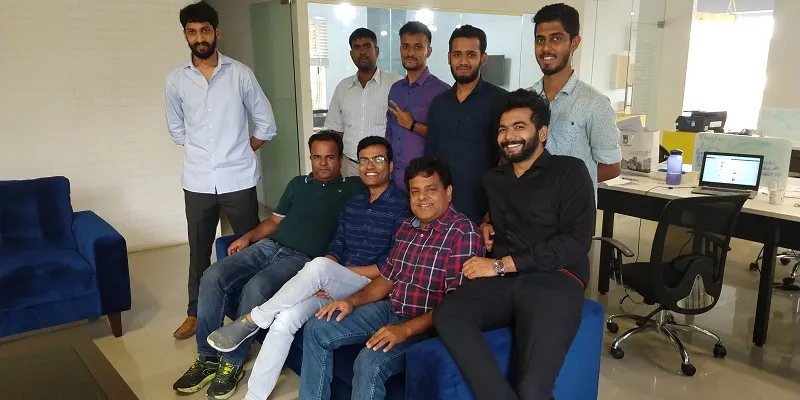WATCH: Let this risk-assessment startup tell you if your real estate investment is worth it
Zippserv specialises in legal due diligence, fraud detection, inspections, and price intelligence, to help people looking to purchase property. In this video interview with YourStory Business Editor Vishal Krishna, Founder Sudeep Anandapuram tells us more about the Bengaluru-based startup.
Sudeep Anandapuram's personal experience in trying to buy a home of his own led him to start up Zippserv along with his friend Debasis Hota in 2016.
A techie, Sudeep returned to India from the US in 2010 after spending 15 years in the country, and was looking forward to buying his own home and settling down in Bengaluru.
Nothing prepared Sudeeep for the legalities or complexities involved in buying property in India. Either the property was caught up in some legal wrangle or there were multiple owners who claimed it.
He had no way to verify the property’s true legal status other than to believe the person who was selling it. But that was a dangerous course to take.
Thus, he teamed up with Debasis to make Zippserv into a platform where any buyer or seller of property could pay a legal team to verify the entire history of their property. Thus Zippserv set up shop as a real estate risk-assessment startup.
Watch Sudeep in conversation with YourStory here:
“That’s how we started and served 8,000 people on the platform at the time. We had so many properties verified on our platform that we eventually made the service free of cost, and launched a service called, Clean Properties, where anyone could search for a property in our archives and find out the authenticity of the papers,” says Sudeep Anandapuram, Co-founder, ZippServ.
The startup specialises in legal due diligence, fraud detection, civil engineering inspections, and price intelligence, factors that are critical for property purchase in India.
Around 30 builders signed up on the platform to convince individuals on the history of their properties.
“You must understand that a lot of times the land is legal, but the building can have deviations, and is registered differently. The common man does not understand while the property may be recognised by the local authorities, the building may not,” adds Sudeep.
This platform-based approach, where people did not have to go through a human element in guiding them, led to the startup securing an investment of Rs 2.5 crore from India InfoEdge. Zippserve has raised a total of Rs 5.5 crore so far.

The ZippServ team does due diligence and risk assessment of factors that are critical for property purchase in India.
This enabled ZippServ to get deeper into the legalities that surround Bengaluru real estate and the company currently boasts a revenue of Rs 1.5 crore.
ZippServ wants to bring transparency and efficiency in real estate. Also those who possess ancestral land can use ZippSrev to verify the history, before negotiating with builders for a joint development.
Branching out in a new direction, the startup has also created a platform for builders to sell their unsold inventory. They have launched group deals on their website, where they offer customers a reduced price on real estate. A group of customers have to pre-book for Rs 10,000 per individual and then they are given a reduced price for the apartment.
Real estate in India has suffered the longest slowdown and builders are struggling to sell their properties. Bengaluru alone has $2 billion worth of unsold inventory. In a report released last year, Anarock Property Consultants says that Bengaluru has 76,550 unsold units in the city.
So with builders wanting to offload their inventory, ZippServ seems to be a welcome idea.
“We have created a platform that can now scale up to other markets across India,” says Sudeep.
The real estate market, according to IBEF, will touch $1 trillion in a decade and currently stands at $120 billion.
The startup has so far worked with builders on more than 80 projects. Its current business model is to make money on legal services and by selling properties for builders. “We have just about scaled up in Bengaluru. Over the next 18 months, we will be looking at taking this concept to other cities,” Sudeep adds.










